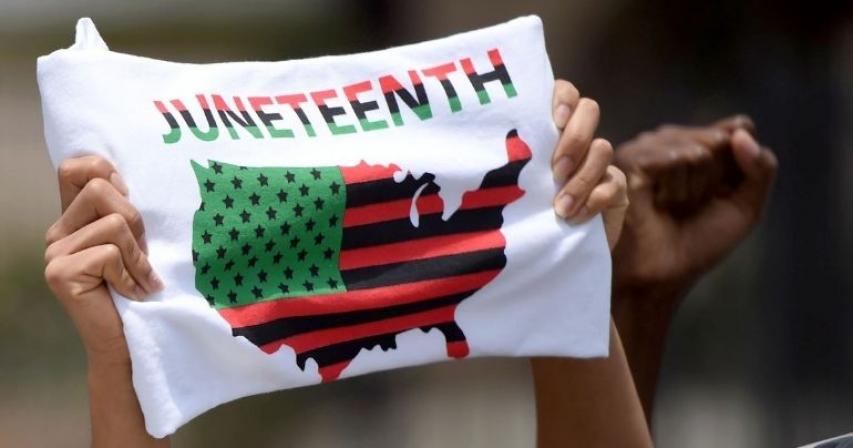US Senate votes to make Juneteenth a holiday
- 4 years ago

The US Senate has unanimously passed a bill to make Juneteenth, the day that marks the end of slavery in the nation, a federal holiday.
The measure now heads to the Democratic-led House, where it is all but certain to pass.
Democratic and Republican senators hailed the rare bipartisan measure in the evenly split chamber.
Juneteenth marks the day on 19 June 1865 when enslaved black people in Texas learned they had been freed.
Charles Schumer, the Democratic leader of the Senate, said: "Making Juneteenth a federal holiday is a major step forward to recognise the wrongs of the past, but we must continue to work to ensure equal justice and fulfil the promise of the Emancipation Proclamation and our Constitution."
An attempt to pass the bill last year foundered when Senator Ron Johnson, a Wisconsin Republican, objected to the cost of adding another federal holiday to the calendar. He said it would cost $600M a year to give government employees a day off.
Mr Johnson did not oppose the measure again on Tuesday, though he said in a statement to the Washington Post that he was still concerned about the cost.
"While it still seems strange that having taxpayers provide federal employees paid time off is now required to celebrate the end of slavery, it is clear that there is no appetite in Congress to further discuss the matter," he said.
Had any senator objected, the bill would have been scheduled for debate, miring the proposal in a legislative timetable that is already chock-full with Biden administration priorities, such as infrastructure and voting rights.
Senator John Cornyn, a Texas Republican, welcomed the bill's passage on Tuesday in a tweet noting that Juneteenth was already a Texas state holiday.
"Now more than ever, we need to learn from our history and continue to form a more perfect union," he said.
In 1980, Texas became the first state to observe Juneteenth as an official holiday.
It marks the day that US Army General Gordon Grainger formally told enslaved African-Americans in Galveston, Texas, that the American Civil War was over and they had been freed by the Emancipation Proclamation, enacted two-and-a-half years earlier by President Abraham Lincoln.
Source: BBC
Comments